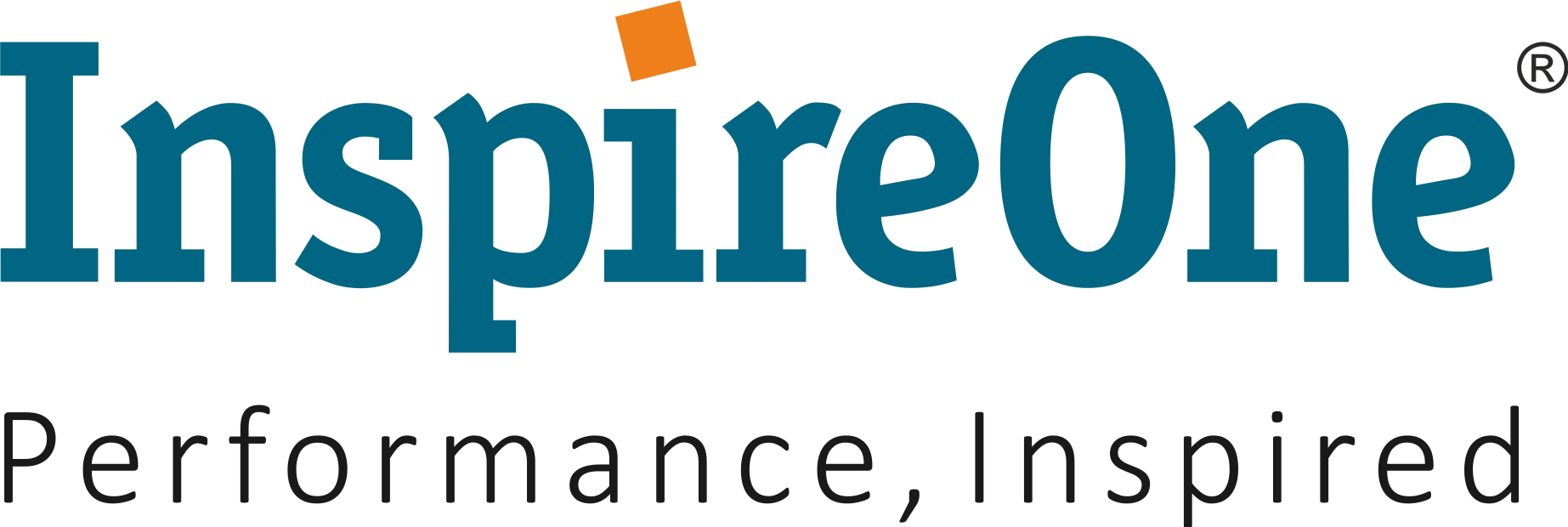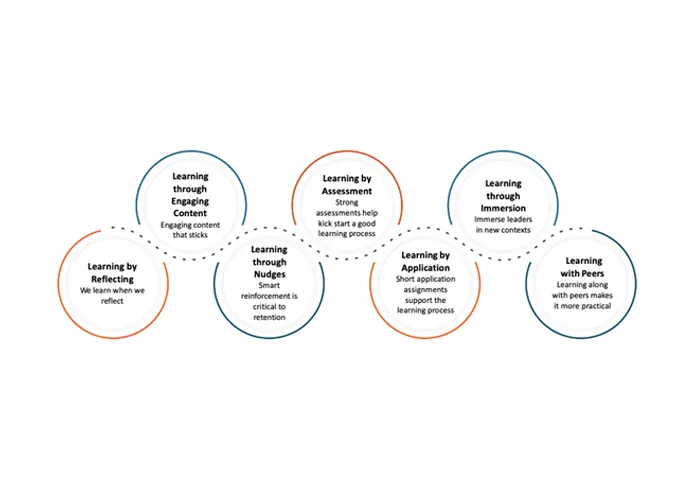By Sumit Sahini
Updated on Mon, August 22, 2022
High potential development is a strategic imperative for almost all organizations. However, many organizations struggle to design a well thought high potential program which ensures the process of deep learning. Through our work with supporting several organizations in designing and delivering high potential programs, we have identified 7 learning design principles. We refer to these principles as 7 Learning Accelerators as they tend to stimulate the process of learning:

LEARNING ACCELERATORS
1. Learning Through Assessments:
High potential leaders need to be prepared to handle future challenges of the organization. To kick start the process, it is necessary that leaders “take a pit stop” to identify their leadership preferences, derailers/drivers and develop a strong action plan. Leveraging the right type of Assessments helps to start this process. High potential leaders should take 2 types of assessments:
- Leadership preferences assessments: These assessments make leaders aware of their “natural” preferences and their strength and derailer.
- Leadership behavior assessments: These assessments enable the high potentials to understand which leadership behaviors are well developed and which leadership behaviors need to be enhanced further.
2. Learning Through Reflection:
Reflection is a critical part of any individuals’ learning journey as when we reflect, we become more cautious in formulating new concepts and strategies. A well designed high potential journey must have well crafted “moments of reflection”. These may include:
- Reflective conversations
- On the job application assignments that help leaders to reflect
- Reflecting on concepts learnt in a session
- Or even reflections basis reading/observing something !
3. Learning by Application:
Learning through application has been a time-tested principle of development. However, this principle gets mis-interpreted as applying learning on business impact projects. Learning through application cover several methodologies. Ideally, “learning embedded in the flow of work” leads to enhanced application. One of the ways of doing this is by crafting very smart, short, practical application assignments through the high potential development journey. This may include assignments like:
- Hackathons
- Strategy creation competitions
- Data analysis and interpretation
- Teaching others assignments
- Conducting talent or team audits
- Customer visits
- Simulations
4. Learning Through Immersion:
One of the core behavioral challenges that high potentials (and even organizations) can face is lack of “outside-in” thinking. This happens when leaders have been too immersed into a known context for a very long time. Operating within the same context daily limits our imagination and therefore “our thinking cluster” as leaders get confined. One of the best ways of solving this problem is by enabling learning through immersions. Simply put, this requires leaders to spend time in exploring “out of context” dimensions so that they can let their imagination fly.
This happens through various techniques like
- Company visits
- Panel discussions with leaders of other industries,
- Industry-agnostic benchmarking,
- Corporate social responsibility projects
- Immersions in lesser understood functions.
5. Learning Through Nudges:
Most of us have been a part of exceptional sessions delivered by brilliant speakers. As learners, we have experienced the “session high” and promised ourselves to try new ways of thinking when we “get back to work”. However, as work reality sets in and we get re-engaged with business challenges our memory of concepts/tools learnt in these sessions starts fading ! This can be tackled by inserting the right nudges, which are ideally a combination of “push” and “pull” strategies.
- Push nudges include coaching conversations, reviews, metrics, and presentations.
- Pull nudges include success stories, ready reckoners, reinforcement apps or even leadership tip of the week !
6. Learning Though Peers:
An area that may get ignored in a High Potential Development Program is learning through peers. Peers in a high potential program can be a critical source of learning as these are similar leaders going through similar challenges but navigating them differently. By encouraging high potential leaders to observe (and learn from) other high potential leaders , we can unlock the leadership capital of group as a whole. This can be done by deliberately adding learning sessions by peers on capability that they are strong at. As an example, a large proposition of high potential leaders need to develop a “digital mindset” but there is a group of peers who excel in it already !. Another way this can be done is by conducting frequent “peer coaching” sessions. This would involve a small group of peers working as a learning team on individual business issues but coaching and guiding each other along the way.
7. Learning Through Engaging Content:
Content is centripetal to a high potential developmental journey. However, the operating principle over here is “engaging content that sticks”. Therefore, content selection has two criteria: a) Is it engaging? b) Will it stick? One of the ways of ensuring this is to leverage real life case studies. The right case studies help us to build up on stories that stick. Another way to do this is by leveraging gamified learning, simulations, and high impact videos. However, it is also critical to ensure that we don’t fall in the trap of “making learning only fun” where it tends to digress and does not help with the learning objective. Therefore content relevance is equally critical.
Let’s leverage the power of these 7 accelerators to design high potential programs that deliver impact







